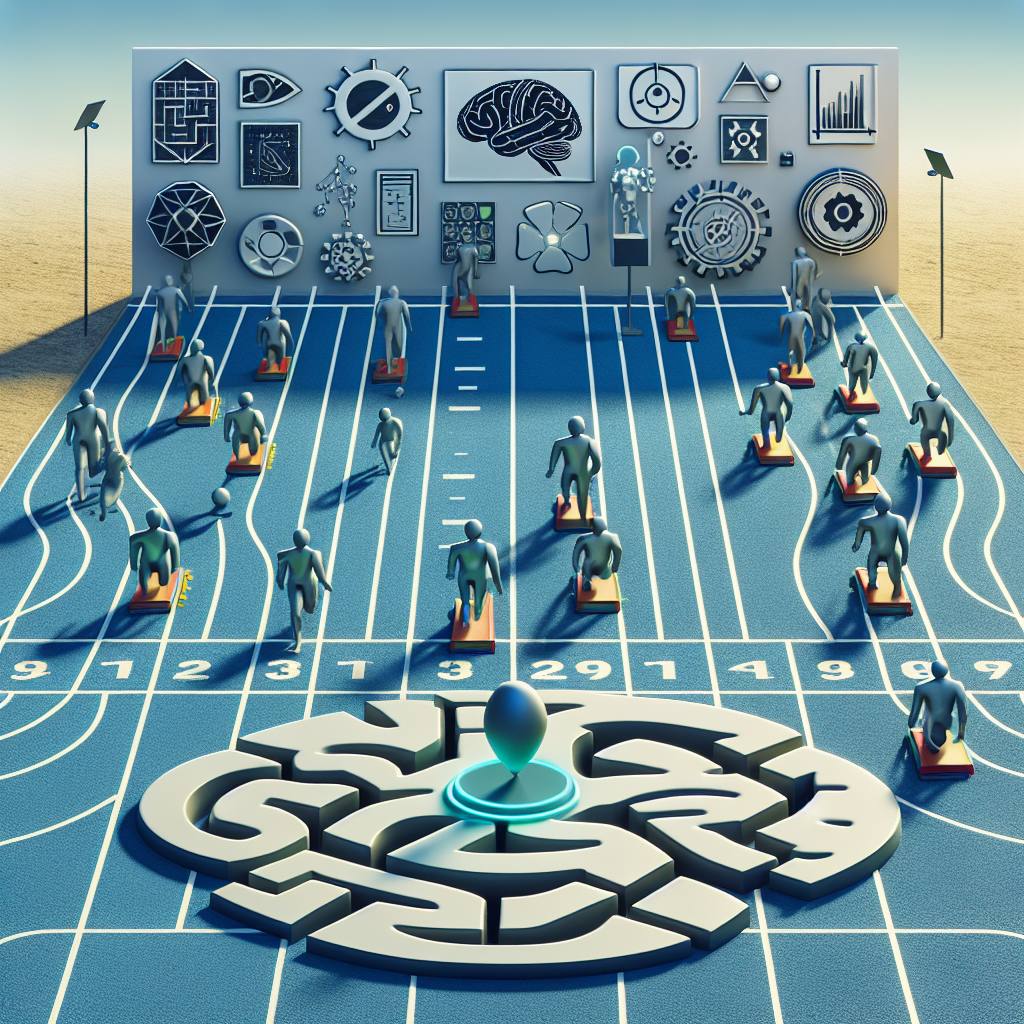The Race for AGI: Who Will Develop the World’s First General Artificial Intelligence?
Artificial General Intelligence (AGI) is the holy grail of artificial intelligence research. AGI refers to a machine intelligence that can understand and learn any intellectual task that a human being can, including reasoning, planning, and problem-solving. While we have made significant advancements in narrow AI applications, such as speech recognition and image classification, true AGI remains elusive.
The development of AGI has the potential to revolutionize industries, solve complex problems, and improve the quality of life for people around the world. However, the race to develop AGI is also fraught with ethical, social, and existential risks. Who will be the first to achieve AGI, and how will it impact society? In this article, we will explore the current state of the race for AGI, the key players involved, and the potential implications of achieving AGI.
The Current State of the Race for AGI
The race for AGI is being led by some of the world’s most prominent technology companies, research institutions, and governments. Companies like Google, Microsoft, and IBM are investing billions of dollars in AI research and development, with the goal of achieving AGI within the next few decades. Research institutions such as OpenAI and DeepMind are also pushing the boundaries of AI research, with a focus on developing algorithms and models that can generalize across a wide range of tasks.
Governments around the world are also investing heavily in AI research, recognizing the potential economic and strategic advantages of achieving AGI. Countries like China and the United States have launched national AI initiatives to support research and development in AI, with a particular focus on AGI. The European Union has also proposed a comprehensive strategy for AI, with the goal of becoming a global leader in AI research and innovation.
Despite the progress being made in AI research, achieving AGI remains a daunting challenge. The human brain is a remarkably complex and efficient organ, capable of performing a wide range of cognitive tasks with incredible speed and accuracy. Replicating this level of intelligence in a machine is no easy feat, requiring breakthroughs in algorithms, hardware, and data.
Key Players in the Race for AGI
Several key players are at the forefront of the race for AGI, each with their own unique strengths and capabilities. Google’s parent company, Alphabet, is a leader in AI research, with subsidiaries like DeepMind and Waymo pushing the boundaries of what is possible with AI. DeepMind, in particular, has made significant advancements in reinforcement learning, a form of machine learning that is key to achieving AGI.
Microsoft is also a major player in the race for AGI, with its Azure AI platform and research lab driving innovation in AI applications. IBM, with its Watson AI platform, is another key player in the AI space, leveraging its expertise in natural language processing and machine learning to develop advanced AI systems.
Research institutions like OpenAI, founded by Elon Musk and others, are also making significant contributions to the field of AI research. OpenAI is dedicated to developing safe and beneficial AI systems, with a focus on achieving AGI in a way that benefits humanity.
The Potential Implications of Achieving AGI
The implications of achieving AGI are far-reaching and profound, with both positive and negative consequences for society. On the positive side, AGI has the potential to revolutionize industries, solve complex problems, and improve the quality of life for people around the world. AGI could lead to breakthroughs in healthcare, transportation, and energy, with AI systems that can diagnose diseases, drive cars, and optimize energy consumption.
However, achieving AGI also poses significant risks, including job displacement, economic disruption, and existential threats. AGI has the potential to automate a wide range of jobs, from manufacturing to professional services, leading to widespread unemployment and income inequality. AGI could also be used for malicious purposes, such as autonomous weapons or surveillance systems, posing a threat to global security and stability.
FAQs
Q: When will AGI be achieved?
A: The timeline for achieving AGI is uncertain, with estimates ranging from the next few decades to the end of the century. While significant progress has been made in AI research, achieving true AGI remains a daunting challenge that will require breakthroughs in algorithms, hardware, and data.
Q: Who will be the first to achieve AGI?
A: It is difficult to predict which company, research institution, or government will be the first to achieve AGI. The race for AGI is highly competitive, with multiple players vying for the title of AGI pioneer. Ultimately, the first to achieve AGI will likely be the organization that makes the most significant breakthroughs in AI research and development.
Q: What are the ethical implications of achieving AGI?
A: Achieving AGI raises a host of ethical considerations, including issues of privacy, security, and accountability. AGI systems have the potential to impact society in profound ways, both positive and negative, and it is crucial that we address these ethical challenges in a thoughtful and responsible manner.
In conclusion, the race for AGI is heating up, with some of the world’s most prominent technology companies, research institutions, and governments vying for the title of AGI pioneer. While achieving AGI has the potential to revolutionize industries, solve complex problems, and improve the quality of life for people around the world, it also poses significant risks and challenges. It is essential that we approach the development of AGI in a responsible and ethical manner, with a focus on creating AI systems that benefit humanity.

